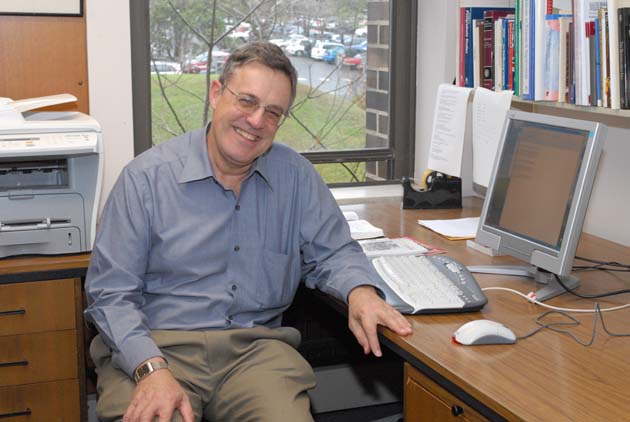Why Australia is ‘one of the most Christianised nations on earth’
Christian historians’ surprise conclusion after years of research
“Australia is probably one of the most Christianised nations on earth,” says award-winning historian Stuart Piggin.
He continues: “Jesus is the great hero of Australian history. He has had more influence on Australia than anybody else in terms of Christian values like humility, compassion, hope – these are the things which really give Australians a positive attitude towards life rather than a negative attitude.”
The reason behind this spread of “Jesus culture” in Australia, according to Piggin, is the evangelical Christian movement.
Piggin is well qualified to make such bold statements, having spent 30 years studying religious history in Australia as director of the Centre for the History of Christian Thought and Experience at Macquarie University (2005-16) and head of the Department of Christian Thought of the Australian College of Theology.
This year, he won Australian Christian Book of the Year for The Fountain of Public Prosperity: Evangelical Christians in Australian History 1740-1914, co-authored with Robert Linder. The second volume of this book has just been released: Attending to the National Soul: Evangelical Christians in Australian History 1914-2014.
“When Billy Graham was here in 1959, he said that he had never experienced spiritual hunger like he did in Australia.” – Stuart Piggin
It wasn’t until Piggin began researching Australia’s evangelical movement as a whole that he made the “remarkable discovery” of just how deep the roots of evangelicalism lie in Australian culture.
These discoveries dispelled many long-held myths and stereotypes and uncovered the role that Christians played in forming our true cultural identity – a fact overlooked by predominantly non-Christian historical religious writers.
One of these stereotypes is that the quintessential Aussie character – most often personified in Australian soldiers – is an anti-religious larrikin.
“My co-author Bob Linder was particularly concerned to readdress that issue because he found that Australian soldiers were very concerned about spiritual and religious issues, as most people are when they face death,” Piggin said in a recent interview on Eternity’s podcast With All Due Respect, hosted by Michael Jensen and Megan Powell du Toit.
“Another stereotype to do with spirituality is that Australians, unlike Americans, have never witnessed revival. I found that back in 1902 there was this remarkable revival in the Mount Kembla colliery and in the mining communities of the Illawarra [NSW].
“And since then I’ve discovered there was a major revival in Melbourne in 1902 and it looks as if Australia were pretty close to having a general awakening in 1902, just like it did with Billy Graham in 1959. So Australians have not been impervious to spiritual things.
“In fact, when Billy Graham was here in 1959, he said that he had never experienced spiritual hunger like he did in Australia ‘among these amiable pagans.’”
“It was an intense, vital personal religion … It was influencing the public sphere.” – Stuart Piggin
Piggin’s books paint a picture of the vitality of the evangelical movement which managed to tap into the cultural consciousness of Australia.
“It was an intense, vital personal religion. By the end of the 18th century, evangelical Christianity had become a public religion. It was influencing the public sphere …
“It’s primarily a lay movement and, therefore, the public side of it is very important … It is concerned about lay concerns like education, health, politics and trade unions, all those sorts of things. Evangelicals have been so involved in those things.”
In the second volume of his book, he shows how evangelicals have also been at the forefront of modern social issues, such as multiculturalism and Indigenous reconciliation.
Piggin explains the key ingredients of this non-denominational movement which made it so influential.
“Evangelicalism is a coalition of biblical experientialists. All those words are very important – as a coalition, you have groups who emphasise different things.
“So, for example, the Baptists and the Congregationalists emphasise dissent. They were the non-conformist conscience in Britain and in Australia. Dissent is a very important ingredient because, from it, you get the prophetic voice, you get the possibility of change …
“However, that’s not strong in the Anglican evangelical component. What they contribute is a defence of the faith. So in the biblical experientialists, they emphasise the importance of the biblical.
“Experientialism comes from the Methodist side of things. And that’s where you get the Pentecostals coming in because the Pentecostals are the heirs of this Methodist commitment to the experience of the Spirit – that vitality, which is essential to evangelical Christianity.
“If you lose any of those elements, [evangelicalism] gets out of kilter and things start to go wrong. And that’s happened over and over again in Australia.”
“Evangelicalism is all about anti-nominalism. It’s all about making people more Christian – that’s its commitment, making the nation more Christian.” – Stuart Piggin
While the path to building a Christianised nation has not always been smooth for Australian evangelicals, Piggin identifies two more unique characteristics that helped carry the movement through to the current day: authenticity and grit.
“In Australia, evangelicals are not as big a percentage of the population as they are in America (although they’re a bigger percentage than in Britain). But Australian evangelicalism is genuine. I think you can still be a frothy sort of evangelical in America without being particularly authentic. But in Australia nowadays, if you bother to be an evangelical, you’re probably the real thing – there’s a genuineness.
“Evangelicalism is all about anti-nominalism. It’s all about making people more Christian – that’s its commitment, making the nation more Christian …
“Another distinctive characteristic of Australian evangelicalism is that it’s pretty tough-minded. It does share in the Australian culture. I think there’s a bit of ‘pub culture’ type of mentality about it.”

Stuart Piggin
Apart from a combined purpose and compelling character, another way evangelicals made such an impact on our nation was by passing on their beliefs to future generations. In tracking some of the family dynasties of Christian believers in his second volume, Piggin says:
“I know that there’s a lot of preoccupation nowadays with family history and genealogy, and it’s indescribably boring. But when you link it, as it as it needs to be done, with social history, I think you will probably discover that families have been major factors in the creation of history.”
Piggin appeals to readers to take this same holistic approach towards the evangelical movement when reading his latest book.
“History is a discipline of context. When you do see the thing as a whole, you see things that you don’t if you just focus on your own group. That’s why it’s very important when you read this book, not just to read about your particular church.”
 Listen to the full interview with Stuart Piggin on episode 29 – “Has evangelical become a dirty word?”– of With All Due Respect.
Listen to the full interview with Stuart Piggin on episode 29 – “Has evangelical become a dirty word?”– of With All Due Respect.
If you like what you hear, subscribe to With All Due Respect for even more conversation, less aggro.


